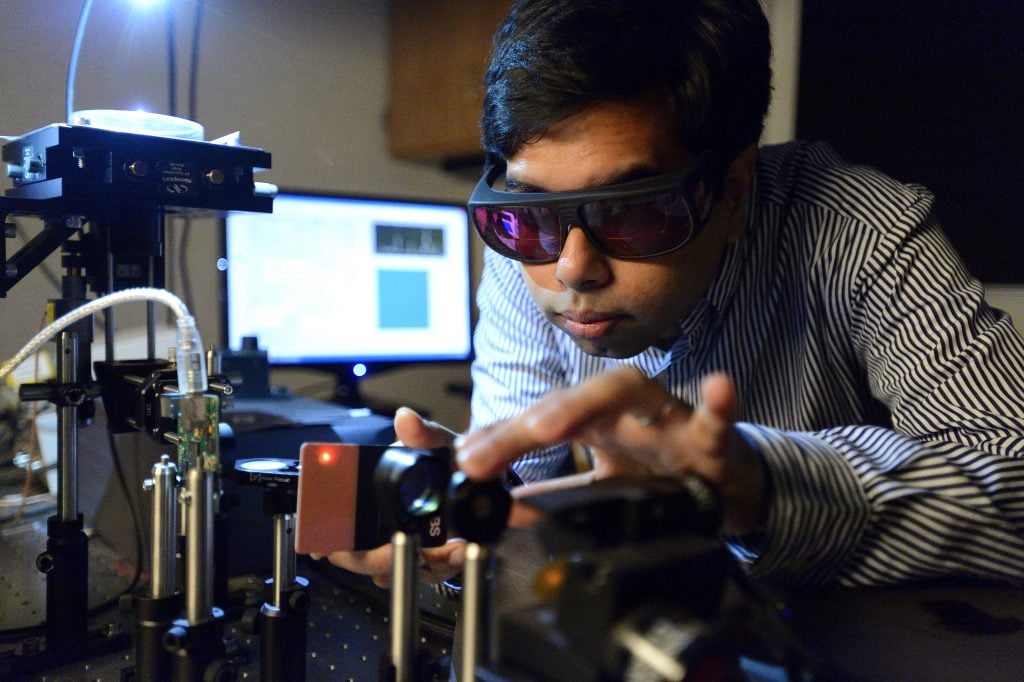
Every year, nearly 1.6 million breast cancer biopsies are performed in the United States and close to 250,000 new breast cancers are diagnosed. But the technique is fraught with errors. “Today, anywhere between 10 to 15 percent of breast cancer lesions are missed, and 60 to 75 percent are found to be benign,” says Ishan Barman, assistant professor of mechanical engineering.
Barman is combining imaging, spectroscopy, and machine learning techniques to help doctors accurately detect early signs of breast cancer.
Microscopic areas of calcium deposition in breast tissue are markers of cancer. Most patients undergo core needle biopsy to test whether the deposits are benign or malignant. But the diseased tissue can sometimes be hard to detect, requiring follow-up surgical biopsy. Moreover, biopsy reading is “hugely subjective,” Barman says.
So he has turned to Raman spectroscopy, a common chemistry technique used to identify the molecular composition of a substance by shining laser light on it and analyzing scattered light.
Microcalcifications have very strong Raman signatures, Barman explains. He and his students have built a small Raman spectroscopy probe and integrated it into a biopsy needle. The idea is that when a doctor inserts the needle in breast tissue, the probe shines laser light and sends scattered light back to a computer. A machine learning algorithm developed by the researchers would analyze the tissue’s Raman signature and predict malignancy. That way, the doctor knows exactly where to guide the needle and whether the tissue needs to be removed.
Tests of the algorithm on biopsy samples have shown a prediction accuracy of nearly 100 percent. “This potentially provides a real-time, noninvasive tool for cancer diagnosis,” Barman says. “Also, this removes errors from human interpretation.”
Additionally, Barman hopes to develop lab-on-a-chip blood tests for cancer that may eliminate the need for invasive detection altogether and would make it easier to monitor a patient’s response to treatment. “We want to have a finger prick test for cancer,” he says.
Tests on blood samples from a few stage 4 breast cancer patients have shown that the chip can detect breast cancer antigens at levels two to five times lower than standard blood tests.
For his pioneering contributions to breast cancer research, the Maryland Academy of Sciences recognized Barman as the 2016 Maryland Outstanding Young Engineer.




